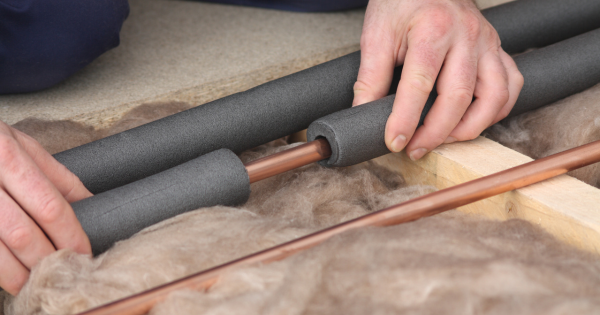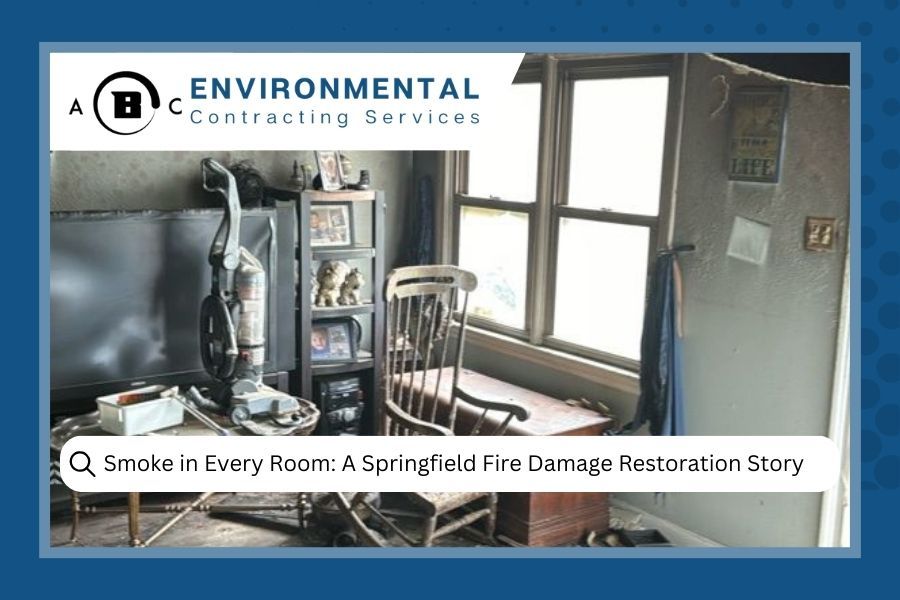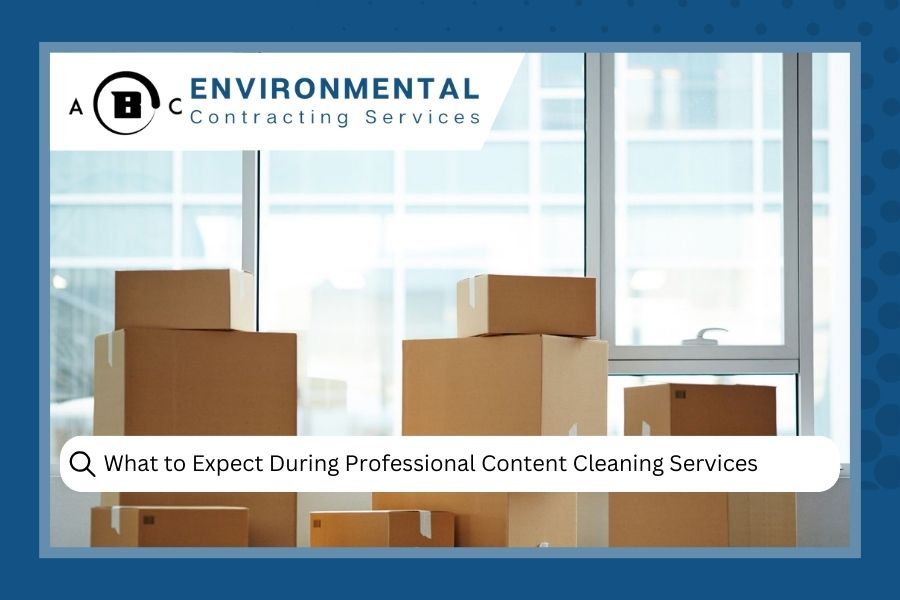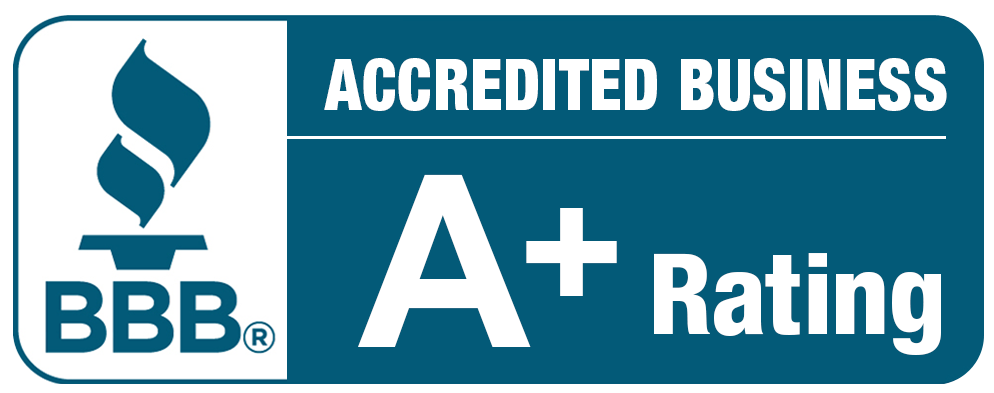
What Happens if Your Pipes Freeze? Take These 4 Steps
Winter can bring a wonderland of snow, cozy fireplaces, and hot cocoa. But along with its charms, winter also brings some not-so-charming consequences, especially for homeowners. One such inconvenience is the freezing of pipes. When temperatures drop below freezing, the water inside pipes can freeze, leading to potential damage and headaches. If left unchecked, frozen pipes can burst, causing significant water damage to your home. So, what should you do if your pipes are frozen? In this guide, we will walk you through the necessary steps to take to prevent pipe bursts and the subsequent need for water restoration Springfield. So grab a pen and paper because it's time to save your pipes and protect your home from water damage.
Understanding the Risks of Frozen Pipes
Frozen pipes can cause significant damage and lead to expensive repairs if not addressed quickly. Understanding the risks and knowing how to prevent frozen pipes in your house is crucial for every homeowner.
One of the main risks of frozen pipes in a house is the possibility of a pipe burst. When water freezes, it expands and puts pressure on the pipe walls. This pressure can cause the pipe to crack or burst, resulting in water leakage once the ice thaws.
A burst pipe can cause extensive water damage to walls, floors, and furniture, leading to the need for professional water restoration services. So, prevention is the key to avoiding the headaches and expenses associated with frozen pipes.
Signs that Your Pipes May Be Frozen
Frozen pipes can cause a multitude of problems, such as decreased water flow, bursts, and even flooding. It's essential to know the signs that your pipes may be frozen so that you can take immediate action to prevent further damage.
- Lack of water flow: If you turn on the tap and only a trickle comes out, your pipes may be frozen.
- Strange smell: Frozen pipes can prevent the proper drainage of wastewater, leading to unpleasant odors. So, if you smell something strange coming from your drains, it is likely that your pipes are frozen.
- Frost: The frost on the exterior of your exposed pipes may be the most obvious sign that your pipes are frozen!
- Banging or cracking sounds: If you hear these strange noises when you turn on the water, it's a sign that your pipes are under stress and may be frozen.
How to Prevent Frozen Pipes
There are several preventative measures we can take to avoid pipe cracks or bursts, but these two are the most common.
- Insulate your pipes:
This can be done by wrapping them with foam insulation sleeves or using pipe insulation tape. Pay special attention to pipes located in unheated areas such as crawlspaces, garages, or attics. By keeping the pipes warm, you reduce the likelihood of them freezing. - Keep your home heated adequately:
Maintaining a consistent temperature, even when you're away, can help to ensure that the pipes stay warm and do not freeze. If you're planning an extended trip during the winter months, it's recommended to set your thermostat no lower than 55 degrees Fahrenheit.
Step-by-Step Guide to Thawing Frozen Pipes
If you are unsure how to tell and what to do if pipes are frozen, follow these 4 steps to thaw the pipes and prevent any further complications.
- Locate the frozen pipes in your house: Check all the exposed pipes in unheated areas like the basement, crawl spaces, and attics. Look for any visible signs of freezing, such as frost or bulges in the pipe. If you can't find the frozen pipe, you may need to call a professional plumber for assistance.
- Open up the faucets connected to the frozen pipe: The open faucet allows the water to flow and relieves pressure in the pipes, reducing the chances of a pipe burst.
- Use heat: Use a hairdryer or a heat lamp to gently thaw the frozen section of the pipe. Start from the faucet end and work your way towards the frozen area. Never use an open flame or high heat source, as it may cause damage to the pipes. Keep applying heat until the water starts flowing normally again. You may need to be patient as this process can take some time. As a precaution, keep the faucets open to allow any remaining ice to melt and water to flow freely.
- Insulate the pipes: Take this step to prevent future freezing. Adding insulation or heat tape to exposed pipes can help keep them warm during cold weather, reducing the risk of freezing.
Hiring a Professional for Frozen Pipe Repairs
Attempting to fix the issue on your own may seem tempting, but it is crucial to leave it to the experts who possess the knowledge, skills, and tools to deal with such emergencies.
By hiring a professional team like ABC Environmental Contracting Services in Springfield for frozen pipe repairs, you can ensure that the problem is solved efficiently and effectively. Our experts have the necessary experience to identify the root cause of the issue and provide a long-term solution. We will also take necessary precautions to prevent any damage to the rest of your plumbing system during the repair process.
What is more, our team has the advantage of having access to specialized equipment that can pinpoint the exact location of the frozen pipes, minimizing the need for extensive digging or damage to your property. We also have the expertise to thaw the pipes safely, avoiding any further complications. Call (417) 409-1719 for a free estimate! At
ABC Environmental Contracting Services in Springfield, MO, we will be at your doorstep within 24 hours to handle your emergencies!






